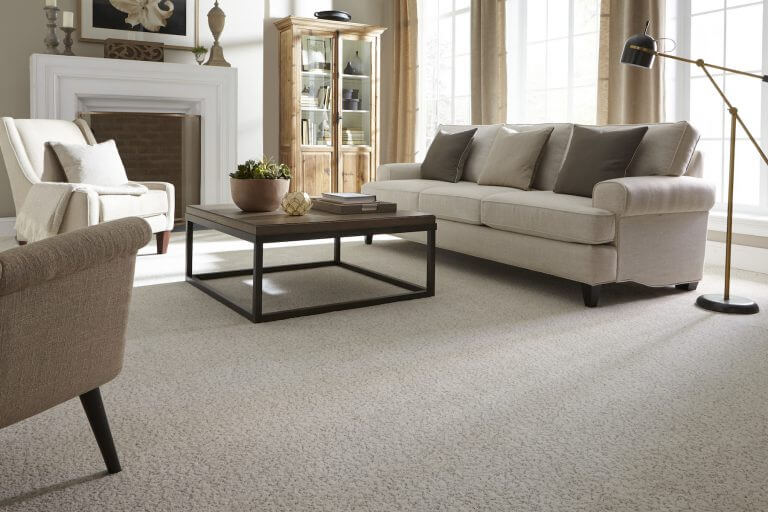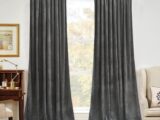
Eco-Friendly Wall-to-Wall Carpets: Sustainable Materials for a Greener Home
April 8, 2025When it comes to designing a home that is both stylish and sustainable, eco-friendly wall-to-wall Carpets dubai are an excellent choice. While carpets have long been a popular flooring option, their environmental impact has often been overlooked. As homeowners become more conscious of their ecological footprint, the demand for sustainable materials in home decor has risen. Wall-to-wall carpets, often considered a luxury item, can now be made from eco-friendly materials that are not only kind to the planet but also bring comfort and style to any room.
In this blog post, we will explore the benefits of eco-friendly wall-to-wall carpets, the types of sustainable materials used in their production, and why they are the perfect choice for homeowners looking to reduce their environmental impact without compromising on style or comfort.
The Growing Demand for Sustainable Flooring
As awareness of environmental issues increases, more people are looking for ways to make their homes greener. Flooring is one area where sustainable choices can have a significant impact. Traditional carpets, often made from synthetic fibers like nylon, polyester, and acrylic, are not biodegradable, and their production processes can contribute to pollution and the depletion of natural resources. Additionally, synthetic carpets may contain harmful chemicals such as volatile organic compounds (VOCs) that can affect indoor air quality.
Eco-friendly carpets, on the other hand, are made from materials that are renewable, biodegradable, or recyclable. By choosing sustainable wall-to-wall carpets, homeowners can reduce their carbon footprint, support ethical manufacturing practices, and create healthier living spaces. But what exactly makes a carpet eco-friendly? Let’s explore some of the materials used in sustainable carpets.
Sustainable Materials for Eco-Friendly Wall-to-Wall Carpets
Wool
Wool is one of the most sustainable materials used in carpeting. It is a natural, renewable fiber that comes from sheep, and its production is less harmful to the environment compared to synthetic fibers. Wool carpets are biodegradable, meaning they won’t sit in a landfill for centuries like traditional synthetic carpets. Additionally, wool is naturally resistant to stains, dirt, and wear, which can help extend the life of your carpet and reduce the need for replacement.
Beyond sustainability, wool is also a highly durable and comfortable material. Its natural ability to regulate temperature and humidity can make your home more energy-efficient by maintaining a consistent indoor climate. Wool carpets are also flame retardant, which makes them safer for homes with children or pets.
Recycled Materials
Recycled materials are at the heart of the eco-friendly flooring movement. Recycled nylon and polyester are commonly used in the production of green wall-to-wall carpets. These materials are sourced from post-consumer products, such as plastic bottles and discarded carpets, and transformed into high-quality carpet fibers.
One of the main benefits of carpets made from recycled materials is that they help reduce waste and the demand for virgin resources. By repurposing existing materials, manufacturers can reduce the amount of plastic and synthetic fibers that end up in landfills. Recycled materials also have a lower carbon footprint compared to their virgin counterparts, making them a more sustainable choice for homeowners.
Bamboo
Bamboo is a highly renewable resource that grows quickly and requires minimal water or pesticides. This makes it an environmentally friendly alternative to traditional carpeting materials. Bamboo fibers are naturally strong, durable, and hypoallergenic, making them ideal for wall-to-wall carpets.
Bamboo carpets are not only sustainable but also incredibly stylish. They have a sleek, modern appearance that can add a touch of elegance to any room. Bamboo carpets are also naturally resistant to mold and mildew, which can be particularly beneficial in areas with high humidity.
Jute
Jute is a plant-based fiber that is biodegradable, renewable, and has a minimal environmental impact. Carpets made from jute are soft, natural, and aesthetically pleasing, offering a rustic, earthy look that can complement a variety of interior design styles.
Jute is often used in combination with other materials like cotton or wool to enhance durability and texture. Jute carpets are ideal for low-traffic areas like bedrooms and living rooms but may not be as durable as other fibers in high-traffic areas.
Coconut Fiber
Coconut fiber, also known as coir, is another natural, sustainable material used in eco-friendly carpets. Derived from the husks of coconuts, coir is tough, durable, and resistant to moisture, making it ideal for high-traffic areas such as entryways and hallways.
Coir carpets are not only eco-friendly but also have a unique, textured appearance that adds a tropical or coastal vibe to any space. Because coir is naturally resistant to pests and mold, it’s a great option for creating a healthy home environment.
Benefits of Choosing Eco-Friendly Wall-to-Wall Carpets
Healthier Indoor Air Quality
Many traditional carpets contain VOCs and other chemicals that can off-gas into the air, negatively affecting indoor air quality. Eco-friendly carpets, made from natural fibers and non-toxic materials, are free from these harmful substances, ensuring that your home’s air is cleaner and safer for your family.
Wool, for example, is naturally hypoallergenic and can help reduce allergens in your home. It also naturally absorbs moisture and pollutants from the air, improving overall indoor air quality.
Durability and Longevity
Sustainable carpets are designed to last longer than their synthetic counterparts. Wool and other natural fibers are incredibly durable and can withstand years of use without losing their texture or appearance. This means that you won’t need to replace your carpet as frequently, which not only saves you money in the long run but also reduces the environmental impact associated with carpet disposal.
Eco-Friendly Manufacturing
Many companies that produce eco-friendly carpets also prioritize ethical manufacturing practices. This includes using renewable energy, reducing water usage, and minimizing waste during production. By choosing these products, you are supporting companies that prioritize sustainability and contribute to a greener economy.
Conclusion
Wall-to-wall carpets dubai into your home is a great way to reduce your environmental footprint while creating a comfortable and stylish living space. With a variety of sustainable materials available, such as wool, recycled fibers, bamboo, jute, and coconut fiber, there is a carpet option for every home and design preference. By choosing eco-friendly carpets, you not only make a positive impact on the environment but also enjoy a healthier, more durable, and beautiful home.







